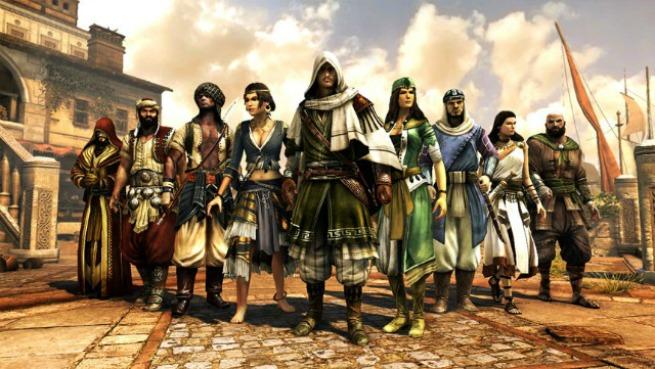
Beiswenger believes there are similarities between the Assassin’s Creed storyline and his 2002 novel Link, according to the complaint filed in a Pennsylvania district court. The novel’s plot includes the creation of a device that allows people to access and relive ancestral memories. The video game series, first launched in 2007, features a similar device called the Animus that allows the protagonist, Desmond Miles, to relive the memories of his killer ancestors.
[aditude-amp id="flyingcarpet" targeting='{"env":"staging","page_type":"article","post_id":418257,"post_type":"story","post_chan":"none","tags":null,"ai":false,"category":"none","all_categories":"games,","session":"A"}']The complaint states that characters in Link experience “notable and historical moments” through their ancestors’ memories, and the novel makes numerous references to assassins and assassinations.
In Link, Beiswenger writes:
If John Wilkes Booth fathered a child after he assassinated Lincoln, and we found a descendant alive today, we could place Booth at the scene and perhaps smell the gunpowder. Ancestral memories? As far back as you want.
The novel contains biblical and spiritual tones, referencing God, Jesus, the Garden of Eden, and forbidden fruit. Assassin’s Creed also makes use of religious themes. Players are often tasked with recovering mind-controlling artifacts called Pieces of Eden, and Adam and Eve are mentioned in the storyline as well.
Beiswenger is seeking a minimum of $1.05 million in damages for 11 counts of copyright infringement. This includes every game in the Assassin’s Creed franchise as well as the official guide, the Assassin’s Creed Encyclopedia, the DC Comics series Assassin’s Creed: The Fall, and video trailers that appeared on GameTrailers.com.
GamesBeat contacted Ubisoft for this story, but the company says it does not comment on ongoing litigation.
